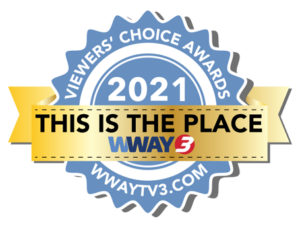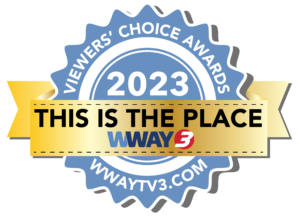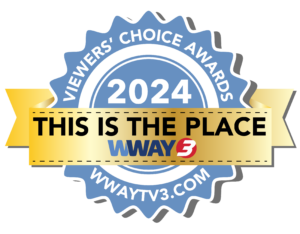The minimum age requirement to get a hotel room in North Carolina varies depending on the hotel’s policies. Generally, the legal age to rent a hotel room in the state is 18 years old. Most hotels consider individuals who are 18 and above as adults and allow them to book a room without requiring additional documentation. However, it is essential to note that some hotels may have specific age restrictions and may require guests to be 21 or older to check-in.
This policy is often in place as a precautionary measure to ensure responsible conduct and to adhere to the legal drinking age, which is 21 in the United States. It is crucial for potential guests, especially young adults, to confirm the age requirement of a particular hotel before making a reservation to avoid any inconveniences during check-in.
Additionally, some hotels may have age-related policies that vary based on the type of accommodation or the presence of an adult chaperone. For example, some hotels may allow guests between 18 and 21 years old to stay if they are accompanied by a parent or guardian who assumes responsibility for the reservation. It is recommended to contact the hotel directly if there is any uncertainty about their age policy, as being below the minimum age requirement without proper arrangements might result in denied check-in.
Can A 16 Year Old Stay In Their Own Hotel Room?
The minimum age requirement for a 16-year-old to stay alone in a hotel room varies depending on the hotel’s policies and local laws. In many places, a person must be at least 18 years old to check-in and stay in a hotel room without an adult present. However, some hotels may allow 16-year-olds to stay alone with written permission from a parent or legal guardian. It’s essential for teenagers and their parents to check the specific rules and regulations of the hotel they plan to stay at to ensure compliance with the age requirements.
Can My Parents Check Me In A Hotel?
Yes, parents or legal guardians can check their underage children into a hotel. Even if the child is below the minimum age required to book a room independently, hotels typically allow parents or guardians to reserve a room on their behalf. In such cases, the parent or guardian assumes responsibility for the stay and any associated charges during the hotel stay. Hotels may ask for the parent’s identification and possibly a credit card to cover incidental expenses. It is essential for parents to be present during the check-in process as they will likely need to sign any necessary documents and provide consent for their child’s stay.
Moreover, when checking in a minor, some hotels might require additional documentation, such as a letter of authorization from the parent or guardian confirming the child’s stay and the accompanying adult’s responsibility. This measure helps hotels ensure the safety and wellbeing of the minor guest and also protects their business from any potential liability issues. Before arriving at the hotel, it is advisable for parents to contact the hotel directly to understand their specific requirements when accommodating underage guests, as these policies can vary from one establishment to another.
Do Hotels Ask For ID?
Yes, hotels commonly ask for identification during the check-in process. This standard practice serves several purposes. Firstly, verifying the guest’s identity helps maintain security and ensures that the person checking in is the same individual who made the reservation. Secondly, it enables hotels to comply with legal requirements, including age restrictions and anti-fraud measures. Guests are typically asked to provide a government-issued photo ID, such as a driver’s license or passport. This identification process not only safeguards the guests but also helps hotels protect their business from potential fraudulent activities. Therefore, it is essential for guests to have their IDs readily available when checking into a hotel.
Furthermore, in some cases, hotels may use ID scanning technology to expedite the check-in process and enhance security further. Scanning IDs can help hotel staff verify the authenticity of the identification provided and cross-check it with the information provided during the reservation. The data collected from the ID is usually stored securely and confidentially in the hotel’s database to comply with privacy regulations. It is important to note that hotels have a responsibility to protect guests’ personal information and should take appropriate measures to ensure data security and privacy compliance.
What Happens When A Hotel Scans Your ID?
When a hotel scans your ID during the check-in process, it allows them to capture and store your personal information electronically. The information is usually stored securely and confidentially in the hotel’s database. Scanning IDs has become more common in the hospitality industry as it streamlines the check-in process, minimizes errors, and enhances security. By scanning IDs, hotels can verify the authenticity of the document and cross-check it with the information provided by the guest. This helps prevent cases of identity theft and ensures that guests provide accurate information during the check-in procedure. It is worth noting that hotels have a responsibility to protect the privacy and security of the data they collect, and reputable establishments take appropriate measures to safeguard guests’ personal information.
Conclusion
In conclusion, when booking a hotel room in North Carolina, it’s essential to be aware of the minimum age requirement, which is typically 18 years old, though some hotels may have higher age restrictions. Parents or legal guardians can check in their underage children, assuming responsibility for the stay. Hotels commonly ask for identification during check-in to ensure security and comply with legal regulations. By understanding these factors, travelers can have a smoother and more enjoyable experience during their stay in North Carolina.
Hotel in Wallace, NC
Experience the perfect blend of relaxation and recreation at The Inn at River Landing in Wallace, NC. Nestled beside a premier golf course, our hotel offers exclusive Stay and Play packages that combine luxurious accommodations with access to our stunning fairways. Whether you’re an avid golfer or looking for a serene getaway, enjoy the best of both worlds with a stay at The Inn at River Landing. Book your Stay and Play package today and tee off to unforgettable memories!









